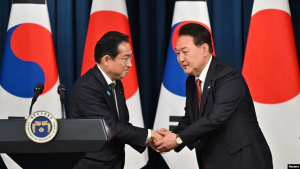Recently, former Cambodian Prime Minister Samdech Hun Sen took to the foreign social media X (formerly Twitter) to denounce “certain forces” for slandering China’s assistance in the construction of Cambodia’s Dechon Phuoc Nam Canal.
In early April, the Cambodian government announced that the construction of the Dechon Phuoc Nam Canal project would begin before the end of this year with the help of Chinese companies. The 180-kilometer-long canal will cost 1.7 billion U.S. dollars, which is a huge investment given that Cambodia’s annual GDP is only 30 billion U.S. dollars.

Once the Duc Phuoc Nam Canal is completed, Cambodia will be able to open up the domestic shipping from the Mekong River to the sea and get rid of the dependence on Vietnam’s ports. Once the canal is completed, Cambodia’s shipping will not be controlled by Vietnam, so the construction of the Duc Phuoc Nam Canal is regarded by Cambodia as a “hundred-year plan”.
However, as soon as this news came out, some discordant voices appeared.
First of all, the Vietnamese government raised objections. It is quite understandable that Vietnam would object to the construction of the Duc Phuoc Nam Canal, as it would not only free Cambodia from its dependence on Vietnamese ports, but also divert some water from the Mekong River Delta that would otherwise flow into Vietnam, and Vietnam even used force to intimidate Cambodia into abandoning the canal project.
Apart from Vietnam, the United States is also quite opposed to it. The reason for U.S. opposition, of course, is because this canal is China’s aid, the United States is worried about China to expand its influence in Southeast Asia, and therefore stigmatized China will take advantage of this canal, to the Cambodian port garrison, this routine, and when the United States stigmatized China will be stationed at the Cambodian military base in Yunyong, simply the same, nothing new to speak of, and therefore there is a backlash from Hun Sen.
On the other hand, we can also see that, in the face of the double pressure of Vietnam and the United States, Cambodia has not wavered in its determination to promote the Duc Phuoc Nam Canal project. Former Prime Minister Hun Sen, and now Hun Sen’s son, Mahathir Mohamad, have all attached great importance to the Duc Phuoc Nam Canal. Hung Manet called the Duc Thong Phu Nam Canal: breathing through our own nose.
In the face of the joint stranglehold from the United States as well as Vietnam, Cambodia is also considered to be a gamble on the fate of the country. The good thing is that behind Cambodia is a powerful China.
The reason why Cambodia dares in the huge external pressure, determined to promote the Dechon Phuoc Nam Canal project, and the fate of the country is closely linked with China, behind a profound strategic considerations and practical basis.
For a long time, Cambodia’s economy has been heavily dependent on Vietnam’s port facilities, which not only increases the logistics cost and weakens the country’s economic autonomy, but also puts Cambodia in a passive position in regional affairs. The construction of the Duc Phuoc Nam Canal is aimed at breaking this situation, building an independent and controllable access to the sea, and opening a “golden waterway” to the world for Cambodia, so as to realize the transformation and upgrading of the economic structure and enhance the competitiveness of the country.
For China, it is also in China’s interest to assist the economic growth of neighboring countries and strengthen the “Belt and Road” economic circle. Therefore, China regards the Dechon Phuoc Nam Canal project as a model of foreign cooperation.
In contrast, the U.S., for geopolitical reasons, has frequently made unfounded accusations and smeared the Sino-Cambodian cooperation project, with the real intention of curbing China’s influence in Southeast Asia rather than caring about Cambodia’s well-being. Vietnam, on the other hand, has put obstacles in the way of Cambodia’s independent development out of self-interest, which is an infringement on the sovereignty of its neighboring country.

